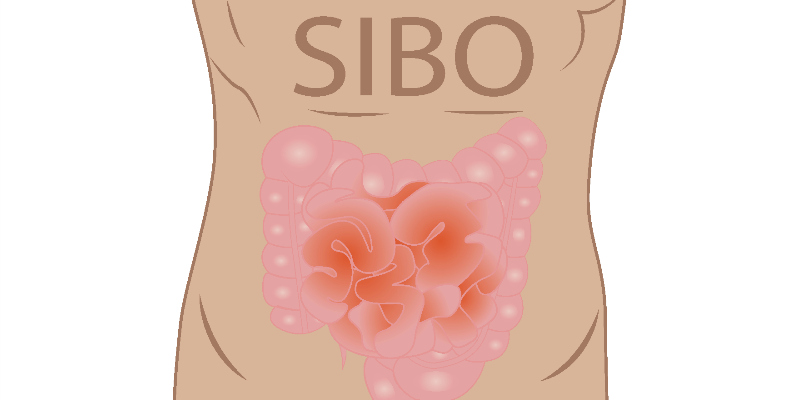By Julia Richards
You may have heard of the microbiome, that array of microbes that populates our bodies, particularly our gut. Bacteria play an important role in digestion and people often eat yogurt and other foods known for their probiotics in order to support gut health. But maintaining the right balance of the right bacteria can be tricky, and sometimes it gets out of whack.
That’s what happens in SIBO, or small intestinal bacterial overgrowth; there’s too much of the wrong type of bacteria in the small bowel.
Doctors may suspect SIBO in cases of bloating, excess gas, abdominal pain and diarrhea that haven’t responded to treatment for more common conditions, like irritable bowel syndrome (IBS). While some cases of IBS may actually be undiagnosed SIBO, this is controversial because there’s not an easy test for the condition. “Are we over-testing, for it? Are we under-testing? Are we over-treating it? I don’t have a great answer,” says Dr. Kerstin Austin, assistant professor in the UW Department of Gastroenterology.
SIBO is diagnosed through either a breath test that’s not very accurate, or an endoscopy, which few doctors order since it’s so invasive, explains Austin. Nonetheless, in patients with persistent bloating who haven’t responded to her go-to recommendations of eliminating triggering foods, Austin may consider treating for SIBO.
The treatment is a short course of antibiotics, which often relieves symptoms quickly. Even then, Austin says, it’s important to be careful of maintaining that delicate balance to prevent infection from a dangerous bacterial strain like C. diff and she recommends patients take probiotics at the same time.
“The more we learn about [the microbiome] the more complicated it seems to get,” she says.
Austin is more likely to suspect SIBO in patients who are at higher risk, including those with diabetes and those who have had surgery on their small bowel. The condition also becomes more common with age.
“It’s probably worth a trial if someone has those symptoms and they’re not responding to our normal therapies,” Austin says.





Comments are closed.